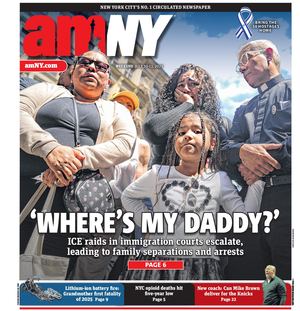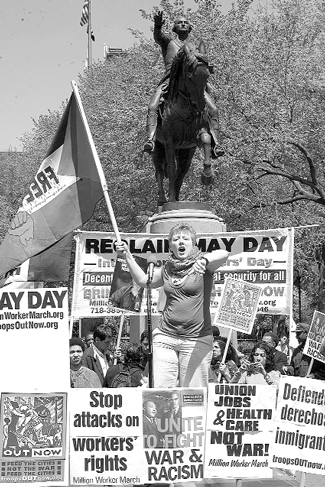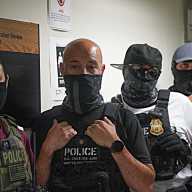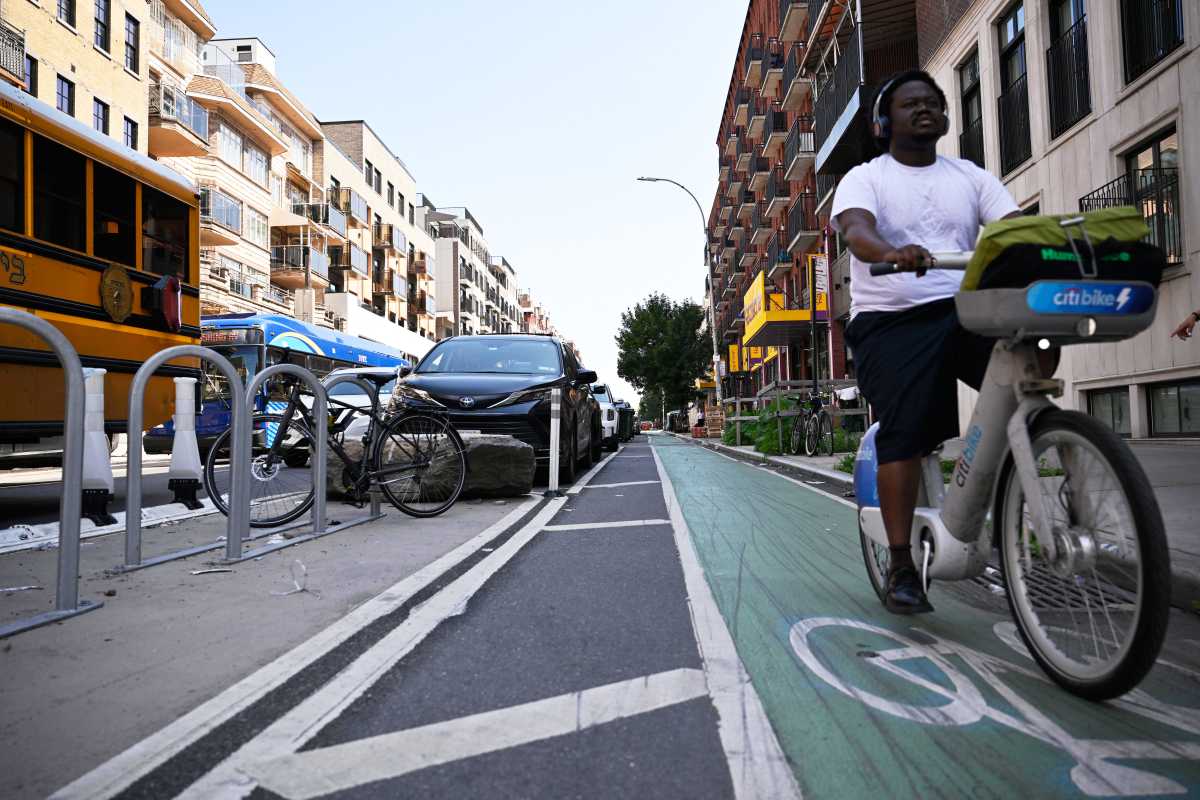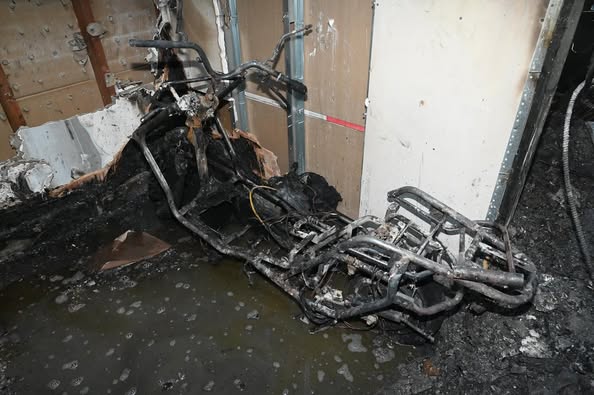By Jefferson Siegel
The concept of May Day has existed for hundreds of years. Originally celebrated as the first day of crop planting, it wasn’t until 1886 that its association with unions and the workforce crystallized. On May 1 of that year, laborers staged actions throughout North America, demanding an end to long days and poor working conditions. In Chicago, at the now legendary Haymarket protest, a bomb of unknown origin killed eight policemen. Union members were arrested, tried and executed, even though there was no proof they were responsible for the explosion. This event galvinized worker sentiment and anger, and the modern tradition of May Day was born.
For many years, May Day was a celebration of the union ethic, as trade unions could boast that most working people were members. In recent years, union membership and influence have dwindled, due in part to globalization, job outsourcing and downsizing.
Last Sunday saw several gatherings throughout the city. Uptown, tens of thousands marched to Central Park to condemn nuclear proliferation. Downtown’s two most prominent parks saw marches and gatherings more in step with the labor theme.
In Washington Sq. Park, a group gathered for a march through Village streets that would end at Union Sq. Organized by Damayan, the Migrant and Domestic Workers Association, the group’s primary goal was to call attention to the exploitation of exported labor, especially of the growing Philippine work force.
Dorotea Mendoza of the Gabriela Network, the Philippine-U.S. women’s solidarity organization, paused from passing out signs to explain the purpose of the day’s march. “For us, we have to put forth the issues of working women worldwide. For the working women of the world, globalization means low wages, working in slavelike conditions or slavery at some times.” Her group works with Gabriela Philippines, which is an alliance of more than 200 women’s organizations. “In the Philippines, because of globalization, there are a lot of impoverished women. We’re talking about 80 percent of the population under the poverty level. When you have that, you are insuring the supply of poor women to fill the demand for cheap labor worldwide, and also, the demand for poor women in the sex industry.”
She emphasized the problem is more local than many realize. “We are numbering close to 2 million [Philippine workers in the U.S.] and, actually, the immigrants of the Philippines are the largest-growing Asian population in the U.S. Up to 70 percent of the exported labor from the Philippines are women.”
Maria Dougherty, a local union organizer and Mass Campaign Coordinator for Linking the Children With the Motherland, added, “We pay tax dollars to support this system that’s in place that continues to marginalize Filipino domestic workers along with domestic workers from around the world who continue to come to this country.”
The marchers, from organizations as diverse as Tribeca’s Restaurant Opportunities Center and the Garment Solidarity Center, gathered in front of New York University’s Bobst Library. Marching through the narrow streets adjacent to the park, they ended up on Broadway and arrived at the Union Sq. May Day Rally shortly before 2 p.m.
In Union Sq., hundreds stood on the south plaza, listening to speeches from groups as diverse as No Draft No Way, the Troops Out Now Coalition, D.C. 1707, the I.W.W. and Billionaires for Bush. Billionaire Ms. Diva Denz — “as in, the dividends that I get from this administration” — gave her tongue-in-cheek take on May Day. “We’re here to lower the minimum wage, to continue our campaign of blood for oil, and ultimately to privatize this park in addition to Washington Sq. Park.” They sipped champagne from tapered fluted glasses, a purposeful counterpoint to the workers standing in union jackets nearby.
Several hundred in the crowd held signs and banners reflective of an antiwar mood as well as pro-labor expressions. Nellie Bailey of the Harlem Tenants Council proclaimed, “We will not allow this government or Mayor Bloomberg to erode the rights of workers.”
The crowd was flanked by the now familiar giant inflatable rat and cockroach, which are usually brought to nonunion buildings and construction sites to protest the lack of labor representation. Geoffrey Blank of the No Police State Coalition crouched nearby, helping cut slices of vegan chocolate cake and vegan cheesecake to celebrate the group’s second birthday. Taking a bite of chocolate cake, he said, “It’s International Labor Day and May Day, the true celebration of workers’ solidarity and commemorating the eight-hour workday struggle and the Haymarket riot and the workers who were framed and hanged by the ruling class.” He shared cake with all who approached.
The march commenced just after 3 p.m, as several hundred started walking east on 14th St. toward First Ave., accompanied by a line of motorcycle police.
Sara Flounders, one of the rally’s organizers from the International Action Center on W. 14th St., said, “This is May Day, and this is where generations of workers have come to really make a statement about the importance of workers’ unity and making demands for healthcare, for pensions, for the eight-hour day, for job rights. This rally here today, we feel, is a very important step in bringing a united force together to demand working peoples’ rights.”
As the march passed the former Palladium disco, now an N.Y.U. dorm, Councilmember Margarita Lopez arrived to cheer on the crowd. “I always celebrate International Workers’ Day,” she said, “because it’s the base of our nation and it’s the base in which we have been able to move forward the quality of life of our working people.” She paused to call out greetings to marchers as they passed. “This is a very special day in our country. And it began in our country at a moment in which workers were not even given basic protections, as being safe in the workplace and not being burned to death. I think this is a union town, it’s been a union town and it’s going to continue to be a union town. New Yorkers have not forgotten [that] and they’re very clear.”
As the crowd passed Second Ave., Rene Imperato spoke from his wheelchair.
A member of Vietnam Veterans Against the War, the Eastern Paralyzed Veterans’ Association and Disabled American Veterans, he said, “How many Americans is George Bush killing? How Many Veterans’ Hospitals is he closing? How many increased user fees, that he calls fees, we call taxes, where you’ve got to have $250 a year to use the V.A. Why? Because he cut billionaires’ taxes last year. So that we have to pay their taxes while he slashes every other budget in the Veterans’ Hospital? ”
Passing Engine Co. 5 on 14th St., the crowd chanted, “Money for Firehouses, Not for War.”
The marchers had planned to walk up First Ave. to the V.A. Hospital at 23rd St. Instead, they chose to walk west on 17th St., past Beth Israel and the Hospital for Joint Diseases, both of which use large numbers of foreign laborers. Chants of “Shut Down the War, Keep the Hospitals Open” and “Hospital Workers Need Fair Pay, Hospital Workers Need May Day” may have roused some patients from rest, so the stops on this block were brief.
The marchers made their way back to Union Sq., arriving before 5 p.m. A police commanding officer estimated the crowd at 200 to 300 people. As signs were disassembled and the crowd started thinning, departing protesters were serenaded by a folk singer singing the familiar union anthem “Joe Hill.”
